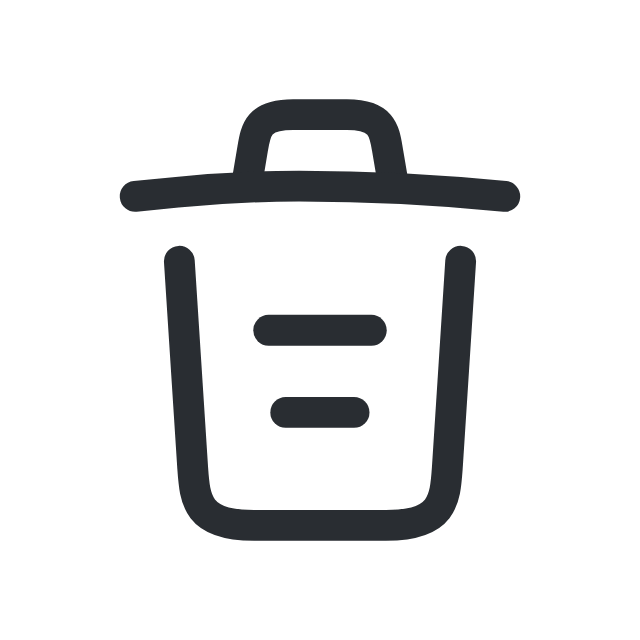Early Awareness Resources
Reports and online links relevant to college awareness, access and preparation
Minnesota Resources
- Minnesota College Readiness Program Inventory
Publisher: Minnesota Office of Higher Education
Pub Date: 2015
Website: www.ohe.state.mn.us/pdf/MNCollegeReadinessInventoryReport.pdf
Description: This report is survey of the landscape of college readiness programming and services across Minnesota and a summary of the data provided by 63 programs mainly serving high school and beginning college students. The report provides a context of the needs of college readiness to enhance the understanding of who is served and why these programs matter. - College Access Matters: The Opportunity for College Access Programs in Minnesota
Publisher: Minnesota College Access Network, Minnesota Minority Education Partnership, Inc.
Pub Date: 2006
Website: https://mneep.org
Description: This report provides information for those seeking to make investments that enhance or expand Minnesota's college access programs to serve more students. - State of Students of Color
Publisher: Minnesota Minority Education Partnership, Inc.
Pub Date: 2009
Website: https://mneep.org
Description: The report provides a comprehensive view of the educational experiences of students of color in Minnesota schools, colleges and universities. It highlights the significant demographic changes affecting perspectives about schools and communities in Minnesota. - Stretching Minds and Resources: 20 Years of Post-Secondary Enrollment Options In Minnesota
Publisher: Center for School Change, Hubert H. Humphrey Institute of Public Affairs, University of Minnesota
Pub Date: 2005
Website: centerforschoolchange.org/wp-content/uploads/2012/09/stretching.pdf
Description: This report evaluates the effectiveness of Minnesota's Post-Secondary Education Enrollment Options program and identifies areas for improvements. - 20 Years in TRIO: A report on TRIO programs in Minnesota 1984 through 2004
Publisher: Minnesota Association of Educational Opportunity Program Personnel (MnAEOPP)
Pub Date: 2006
Website: eoa.org/content.aspx?page_id=22&club_id=254413&module_id=203761
Description: The report highlights activity and outcomes of TRIO programs in Minnesota. - The 1999 Minnesota High School Follow-up Survey: Post-Secondary Education Choices of the Minnesota High School Class of 1999
Publisher: Minnesota Office of Higher Education, Minnesota Department of Education
Pub Date: 2001
Website: www.ohe.state.mn.us/pdf/1999MNHCSurvey.pdf
Description: The report concludes that while Minnesota seeks to provide access to postsecondary education for all its citizens, significant gaps in college participation exist between students and families with limited financial means and those with higher incomes. - Minnesota Association of Student Financial Aid Administrators (MAFAA) [www.mafaa.org]
Committed to the principle that no one should be denied access to higher education for financial reasons. The Association sponsors Focus on the Future (fourth through sixth grade) and Kids, Colleges & Careers (eighth grade) to build self-esteem, set goals and explore careers. - Minnesota College Access Network (MCAN) [www.mncollegeaccess.org]
Engages multiple stakeholders to close the college participation gap in an effort to transform and enhance college access programming in the state of Minnesota so that every student has access to higher education. - Minnesota TRiO Association [www.mntrio.org]
Advocates for low-income, first-generation, educationally disadvantaged persons to access and successfully complete postsecondary education.
National Resources
- Pathways to College [www.pathwaylibrary.org]
The Pathways to College Online Library is a searchable database of publications, research reports, websites, and other resources for researchers, education leaders, and policymakers working to improve college and career readiness. - Education Resources Information Center [www.eric.ed.gov]
Institute of Education Sciences national education database. - Council for Opportunity in Education
Seeks to advance and defend the ideal of equal educational opportunity in higher education by providing a voice for low-income and disabled students. It works in conjunction with colleges, universities and agencies that host TRIO programs. - Gaining Early Awareness and Readiness for Undergraduate Programs (GEAR UP) [www.ed.gov/gearup/]
Created to increase the number of low-income students who are prepared to enter and succeed in postsecondary education. The Office of Higher Education administers Get Ready, the state GEAR UP program, and St. Olaf College administers a GEAR UP Partnership grant program. - Harvard Family Research Project (HFRP) [www.hfrp.org]
Helps stakeholders develop and evaluate strategies to promote the well being of children, youth, families and their communities by working in three areas that support children's learning and development: early childhood education, out-of-school time programming and family and community support in education. - National College Access Network (NCAN) [www.collegeaccess.org]
Helps state and local college access programs that provide counseling, advice and financial assistance; shares best practices among the network; provides leadership and technical assistance; helps communities create new college access programs; and advocates for public policy in support of the students its programs serve. - National Council for Community and Education Partnerships (NCEP) [www.edpartnerships.org]
Brings together colleges and universities with local schools, government, business and community-based organizations to develop and strengthen broad-based education partnerships and seeks to help improve public K-16 education. - Pathways to College Network [www.pathwaystocollege.net]
Advances college access and success for underserved students, including first generation, low-income, and underrepresented minority students, through an alliance of major foundations, non-profit organizations, educational institutions and the U.S. Department of Education. - The Education Resources Institute (TERI) [www.asa.org]
Offers comprehensive programs for individuals and organizations which provide information, guidance and practical help that help underserved individuals achieve their college and other postsecondary educational goals. - U.S. Department of Education [www.ed.gov]
Promotes student achievement and preparation for global competitiveness by fostering educational excellence and ensuring equal access. The department provides information on research, statistics and programs that relate to early awareness.
Quick Links
- Why College?
- Explore Your Interests & Careers
- Prepare at School
- Summer Academic Enrichment Program
- Earn College Credit in High School
- Recommended High School Classes & Graduation Requirements
- Advice for Students with Disabilities
- Succeed as an Adult Student
- Useful College Prep Resources
- Minnesota Goes to College!
- Get Ready Program Overview
- College Planning Presentation Information
- College Navigator Presentation Request Form
- Minnesota Indian Scholarship Program Outreach
- Competitive Grant Programs
- Dual Training Grant
- Public Engagement Calls
- "Life After Now" Podcast
- Certified Nursing Assistant Training
- Direct Admissions Minnesota
- Collecting Data from Minnesota Postsecondary Institutions
- Campus Financial Aid Administrator Resources
- Statewide Financial Aid Conference
- Campus Student Enrollment Reporting Resources
- Ordering Materials for Your Students
- Supplementing Your College Counseling
- Early Awareness Efforts
- Student Homelessness in Higher Education Resources
- Shared Library Resources
- MN FAFSA Tracker
- Campus Sexual Violence Prevention and Response
- Statewide FAFSA Filing Goal
- Financial Aid Estimator
- Online Applications
- About Financial Aid
- What Does College Cost?
- Tips for Lowering the Cost of Higher Education
- Institutional Payments
- Financial Aid You Don't Repay
- Financial Aid You Must Repay (Student Loans)
- Financial Aid You Earn
- Military Service Education Benefits
- Reduced Out-of-State Tuition Options
- Education Tax Benefits
- New Video Demystifies Paying for College
- Public Service Loan Forgiveness
- Useful Online Resources
- Ready, Set, FAFSA!
- Data Maps and Infographics
- Educational Attainment Goal 2025
- Minnesota Measures
- Minnesota P-20 Statewide Longitudinal Education Data System
- College Readiness & Participation Data
- Student Enrollment Data
- Degrees, Graduation Rates, Attainment & Outcomes
- Financial Aid Data & Trends
- Tuition & Fees Data
- Student Health and Safety
- Institution and Data Search
- Transfer Students
- Research Reports
- A-Z Data Table Index




